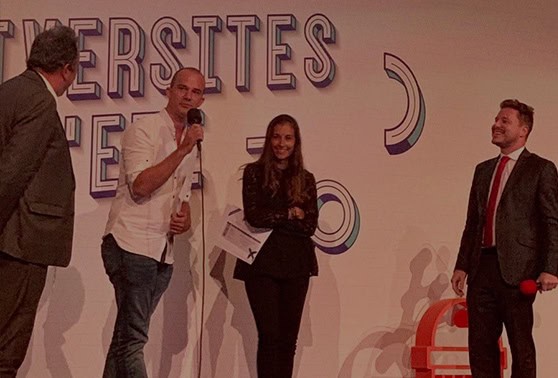
We’re very excited and proud to announce that our member Froment from the ACC firm in Saint-Raphael, France recently submitted his dissertation.

Froment examines how AI is integrated into accounting offices to answer some of these questions. But, ultimately highlights the benefits of AI, especially chatbots, and their ability to save us time and develop a more strategic business model for improved performance and operational results.
Ultimately, Froment argues for accountants to stay up-to-date on this trend, saying:
‘Just like a young employee coming out of education, we will have to welcome, teach, and update knowledge constantly, reviewing the areas of specialty according to the specifics of the firm.’
Find out more about the rise of AI and how you can prepare for a future with robots in Froment’s dissertation. Feel free to contact Romain Froment on LinkedIn to request a copy of this document and engage in the debate around AI. You will find below a dissertation's synthesis.
Methodology of Setting Up a Chatbot as a Tool for the Appropriation of Artificial Intelligence by the Accounting Firm with a View to Transition to the Expert Accounting Increases.
What is artificial intelligence (AI)? Alan Turing’s imitation game, was recently explained in these terms:
“Turing draws upon a classic intuition of philosophy: if I know that I think, I don’t know whether others think, as I don’t have access to their inner world. I can only conjecture as to whether they think. I only hold access to the appearance of their thoughts. Therefore, I don’t need a machine that thinks, I need a machine that imitates thought.”1
AI is, therefore, no more than a machine that imitates intelligence. It is not actually intelligent.
Once this is understood, we can approach the subject of AI without fear or debate, especially within the context of our accounting firms.
My employers and later partners always informed me that they had heard about the end of accounting for decades: the arrival of software programs or automation. They had feared the end for a long time without it ever happening.
So, is AI in its current form within our personal and professional lives heralding this constantly pushed back finale?
All sources suggest that the question is not if, but rather when.
I have, therefore, integrated this assumption and examined my own self-disruption in the hope of avoiding greater disruption, beginning with the implementation of AI in my own practice.
However, close integration of AI into accounting firms is extremely delicate. It touches upon the recurrent fear of “am I going to be replaced by a machine?” I have witnessed enormous objections, which are often expressed in an indirect manner. I have also taken the liberty of studying AI itself and have reflected upon its method of integration into our offices.
I am opting to study the chatbot primarily for two reasons: first, its degree of maturity within the hype cycle today is one of disappointment. We are, therefore, ready to consider its adoption and are arriving at a time when it’s actually being used.
Secondly, it saves time for colleagues, helps digital brands stand out for prospective clients or third parties, and enables an improved client experience.
Finally, its internal construction, particularly involving employees, allows for the appropriate use of new methods which provide strategic advantages for the business and allows companies to operate flexibility in regards to project management and innovation.
To be able to work on the chatbot and discover the implications for using it within teams, I turned towards the best option: IBM Technology’s Watson Assistant.
This essay clearly explains the proponents and reasons to use of IBM tools to develop chatbots. It then returns to examine the key success factors of these projects.
Impediments to the acceptance of use (legislation etc.) are also covered, but most importantly this essay concludes by examining the integration of AI into an organization.
Just like a young employee coming out of education, we will have to constantly welcome, teach, and update our knowledge and review the areas of specialty according to the specifics of the firm.
Integrating a chatbot provides an accounting practice and original format of adoption for digital transformation and acceleration. Taking into account agile methods, the concepts of MVP and phygital will facilitate an increase in the work of collaborators as well as the customer experience.
Such projects result in a prerequisite, which take the human into account as a priority. This essay repeatedly refers to the concepts I learned at Think Paris 2018 from IBM at Carrousel du Louvre: The symmetry of attention between employee and customer.
Current literature surrounding AI generally proposes more questions than answers. In effect the uncertainties are numerous and questions surrounding ethics, morals and philosophy are largely beginning to replace technological questions. I have, therefore, allowed myself to enthusiastically quote numerous authors from antiquity up to the present day to help us analyse tomorrow’s situation more carefully and more importantly those concerning us today.
